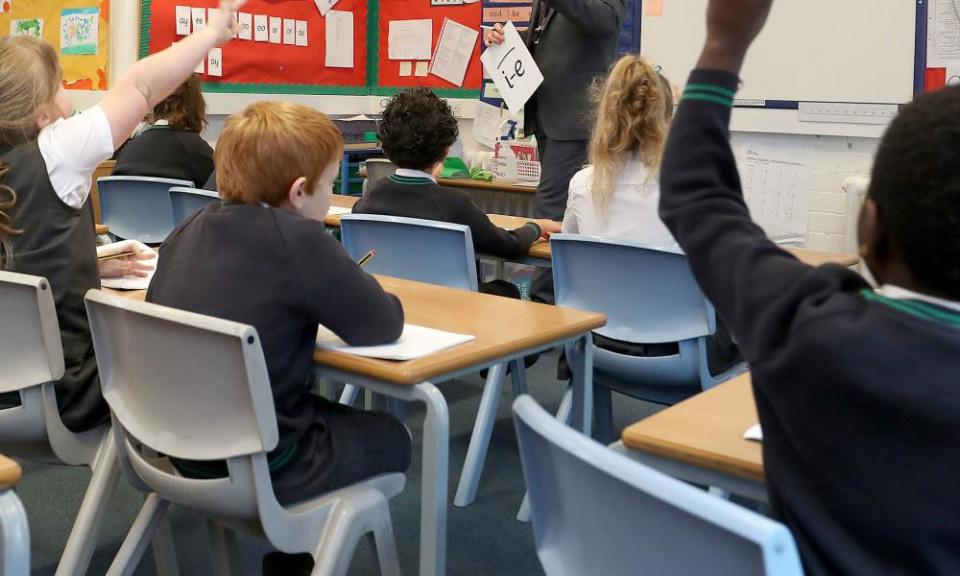Schools tsar says England’s £1.7bn Covid catch-up package not enough

The government’s newly appointed education recovery commissioner has warned that the prime minister’s £1.7bn catch-up package is not sufficient and that England’s children will need a sustained, far-reaching recovery plan.
Sir Kevan Collins, who was recently appointed to lead the government’s catch-up strategy, told MPs on the influential cross-party education committee he hoped the disruption caused by the pandemic would lead to long-term education reform and that the crisis had exposed underlying scars in the system.
“We have to be bold and ambitious,” he said. “The recovery needs to be long term, sustained and far-reaching. Catch-up is not the language I’m using. It’s much more about recovery over time. Catch-up is part of it but that is not going to be enough.”
His comments came days after the prime minister announced an additional £400m for the government’s catch-up programme, on top of the £1.3bn previously announced, including additional funding for summer schools, more tutoring and a £300m Covid recovery premium for schools to spend on supporting disadvantaged children.
Collins told MPs the “summer package” was a good start. “But it’s not a recovery plan. We need to go much further, with a more fundamental and long-term piece of work.” And he told MPs he was prepared to challenge the government where needed to secure resources for the long term.
Watch: Secondary pupils to wear face masks when schools reopen - here's what to expect
MPs voiced concern that the government’s flagship national tutoring programme, which is designed to deliver one-to-one and small-group tuition and is central to the catch-up programme, has so far only reached 125,000 of the 1.4 million disadvantaged children eligible for free school meals and likely to be in need of additional support.
Collins, who has a nine-month contract to work with the government on education recovery, defended the scheme and said it was still in its early stages but promised to become an “exciting” new feature of the education landscape. He also did not rule out extending the school day or shorter summer holidays, adding: “It’s a time for all things being considered, all things being available.”
However, Prof Becky Francis, the chief executive of the Education Endowment Foundation, told MPs there were only “marginal gains” in a longer school day. “It’s been shown that there’s a tapering of benefit the longer that the school day progresses … there are issues around pupils’ attention and what can be required of pupils.”
Geoff Barton, the general secretary of the Association of School and College Leaders, added: “Ultimately, the most important thing for young people is a broad and balanced curriculum where we don’t use the language of ‘catch-up’ and think: ‘Right, I’ll take them out of their PE lessons and give them extra maths.’ This should be about quality not quantity, which is why I think a lot of us have problems with the summer school idea, which we think is a bit of a marginal issue.”
On the full return to school from 8 March, Barton said: “My guess is that the routines for a lot of young people will suddenly kick back in and actually they will look back like the evacuees at the end of the second world war thinking: ‘That’s an extraordinary experience, I’m glad to have lived through it.’”
With most children still learning remotely during lockdown apart from vulnerable pupils and children of key workers, school attendance has nevertheless jumped again in England. Eighteen percent of children were in state schools last week, including more than a million children of key workers, up from 894,000 the week before half-term.
Attendance is highest in special schools, which have remained fully open, where 44% of children were on site last week compared with 35% before half-term. Numbers in primary schools have also gone up, with 27% in class last Thursday, compared with 24% on 11 February, and the proportion of secondary pupils in classrooms up from 5% to 6%.
Watch: Does the new education funding go far enough?

 Yahoo Finance
Yahoo Finance 